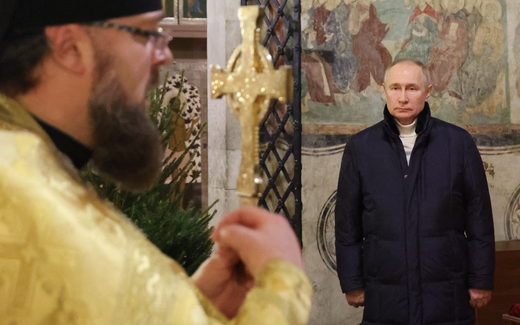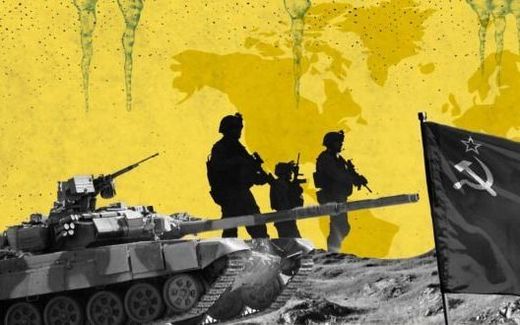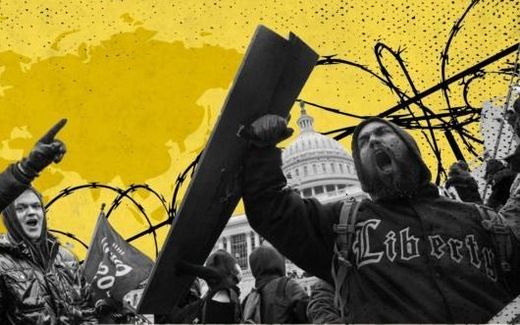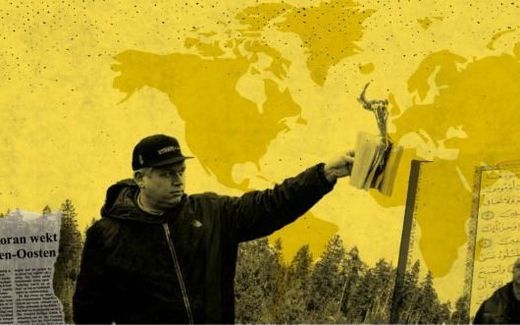History turns out to be a super weapon on the battlefield
06-03-2023
Opinion
Jakob Hoekman, RD
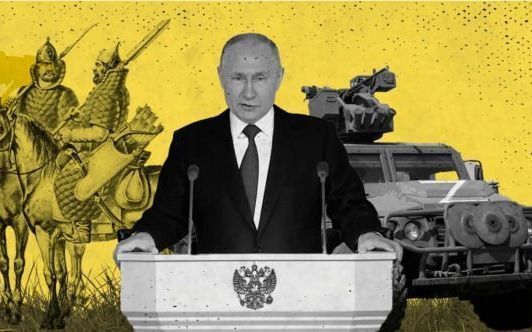
Photo RD
Opinion
Now that the Russian invasion of Ukraine has been going on for one year, Ukraine is demanding –and receiving– more and more weapons from the West.
The country received anti-tank weapons, drones, artillery for longer distances, tanks and who knows, in the future, even fighter jets. But there is another very effective weapon, not usually included in these lists. That is history, especially how countries use history for their own purposes. History, if used well, can provide a compelling story about the usefulness and necessity of war. So well, in fact, that any doubts you might have can evaporate just like that.
Historic soil
How that works, we have now seen up close for a year. Just this week, the weapon was raised in the almost simultaneous speeches of Russian President Putin in Moscow and US President Biden in Warsaw, Poland.
Right at the start of his speech, Putin repeated some key elements that he has mentioned many times before: Ukraine is "our historic soil", a land now ruled by a "neo-Nazi regime".
Us vs them
Journalist Jakob Hoekman researches history to find answers to difficult questions related to the news.
Bam! Two major historical claims have already been made right there. The one of the neo-Nazis links Ukraine to the foul party from World War II. The other, of historical ground, goes back more than a thousand years when Kyiv was the capital of the proto-Russian Kyiv Empire. The suggestion is that the longstanding Russian order that has always ruled there since then has been cast aside by the current neo-Nazi regime.
The logical conclusion is that Russia is called to restore this order by actively intervening. It is striking that Putin has increasingly made this kind of historical claim over the years. Historians Niels Drost and Beatrice de Graaf demonstrated this recently in analysing more than 11,000 Putin speeches and statements.
So, from Putin's point of view, history justifies his decisions. But not only that. He also uses historical events to scapegoat the opponent. "They", the enemies, Putin says, are behaving as disrespectfully in Ukraine now as they did earlier when they destroyed Yugoslavia, Iraq, Libya and Syria. During the long centuries of colonialism, Western elites have become accustomed to "spitting on the whole world", particularly Russia.
Oppressed
Some of Putin's claims are open to question. For instance, it is historically difficult to characterise the current Ukrainian government as neo-Nazi. Putin also ignores the fact that the part of the Ukrainian population that wants to join the West themselves has grown strongly over the years. They are not being "oppressed".
Nevertheless, there are valid historical facts in Putin's argument. The point is: historical facts are patient. You can use them any way you want. Putin knows that. It is precisely what he accuses his opponents of: "They never stop lying and twisting historical facts while attacking our culture, the Russian Orthodox Church and other traditional religious organisations in our country."
Even in Putin's own argument, however, historical facts are primarily meant to be useful pillars that carry his overarching framework. He wants to tell a big story; that the West has been trying to realise one big "anti-Russia project" for centuries.
This idea is woven throughout his speech. "People with knowledge of history realise, at least to some extent, that this project dates back to the 19th century. The Austro-Hungarian Empire and Poland had conceived this project for one purpose – to deprive Russia of these historical territories now called Ukraine. This is their goal. There is nothing new here; they are repeating everything."
Old historical empire
That is the Russian side. But of course, that is not the only side that uses history as a weapon. It also applies on the Western side, although to a much lesser extent. What is striking is that the references on that side almost never go back a thousand years or more. No grand tales of a dreamed past here; history tends to stay close to home. Especially memories of World War II work well.
US President Biden's speech in Warsaw this week shows that. "The principles that have been the cornerstone of peace, prosperity and stability on this planet for more than 75 years are in danger of being destroyed," he said. He blamed Putin for wanting to rebuild an old historical empire while history moved on.
Just like Putin, Biden builds up an overarching framework that is propped up by historical facts. That framework is that the free world (read: the democratic West) is threatened by Russian aggression. "We see again today what people in Poland and people all over Europe have seen for decades: the appetite of the autocrat cannot be satisfied," Biden said.
Ukrainian President Zelensky says more or less the same things in his speeches, British historian Sam Edwards researched. He liberally sprinkles terms like freedom and democracy, especially when he intends to loosen up more Western support.
And yes, these heads of state too distort facts when it is convenient. For instance, Biden reported that democracies today are getting stronger and autocracies weaker. The opposite is true.
Eschatological future
What you are left with at the end are two diametrically opposed worldviews. The Russian narrative of a Western anti-Russian project and the Western narrative of freedom threatened by Russia. Two grand narratives, both seeking to be justified by history. With the stated or unstated promise that the past will be restored in the future.
The only problem is that this overloads history. In the end, truth is more than an accumulation of historical facts. It is also more than an overarching framework in which the other person functions as the villain.
But when your own version of history becomes the only true narrative, as you see happening, especially on the Russian side, you also become responsible for creating the eschatological future that comes with it. How to do that? For instance, by starting wars and invasions. These are historically the rule rather than the exception for powerful men who boast an illustrious past – even if they rarely deliver that future your version of the past promises.
This article was translated by CNE.news and published by the Dutch daily Reformatorisch Dagblad on February 25, 2023
Related Articles

